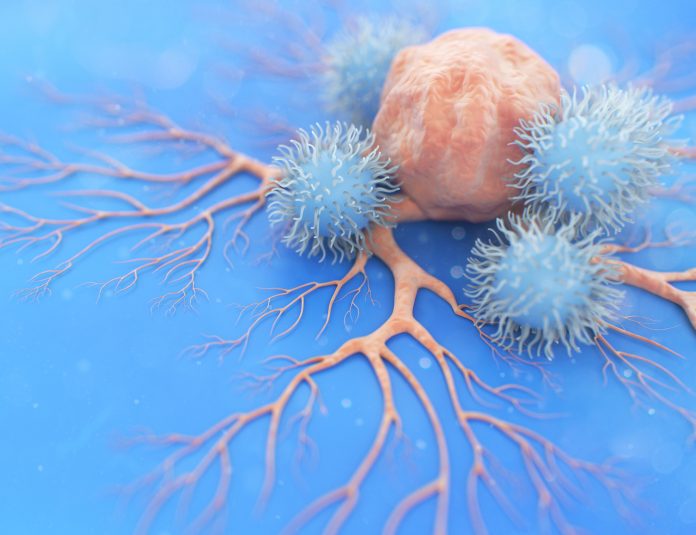
Mount Sinai researchers report that they had found a subset of CD8 T cells in bladder cancer that adapt to tumor evasion strategies by appropriating innate-like properties traditionally ascribed to natural killer cells. The finding could offer strategies to overcome the low rates of response to immune checkpoint inhibitor therapies for the treatment of bladder cancer.
The research, published in Cancer Cell, also detailed cancer cells’ ability to resist PD-L1 checkpoint blockade therapy. Advanced bladder cancer is aggressive and patients generally have poor prognoses. While several immune checkpoint inhibitors have been approved by the FDA for bladder cancer, only about 20% of patients sustain good response to the drugs.
“Immune checkpoint blockade is a leading type of cancer immunotherapy that targets the PD1-PDL1 pathway in order to re-engage ‘exhausted’ CD8+ T cells in the fight against tumors,” said co-corresponding author Nina Bhardwaj, MD, PhD, director of Immunotherapy, co-director of the Cancer Immunology Program and Professor of Medicine (Hematology and Medical Oncology) at The Tisch Cancer Institute at Mount Sinai. “In this paper, we show that responses to PD-L1 blockade in patients with bladder cancer are influenced by an additional immune checkpoint axis identified recently in other cancers: NKG2A-HLA-E.”
The immune response to cancers is the activation of “natural killer cells” which work to kill off the tumor cells. However, in many case tumor cells are often able fend off the natural killer cells and continue growing. The Mount Sinai teams discovered a subset of CD8 T cells could adapt to this evasion by the tumor cells via acquiring certain properties of natural killer cells.
To create these additional killer cells, the researchers demonstrated a method to induce CD8+ T cells to express a molecule known as NKG2A on their surface, allowing them to behave more like natural killer cells. This study showed that NKG2A is associated with improved survival and with responsiveness to a cancer-fighting immunotherapy known as PD-L1 checkpoint blockade.
The second discovery concerns cancer cells’ ability to resist PD-L1 checkpoint blockade therapy. The researchers noted that tumors can maintain expression of a protein called HLA-E on their surface that can resist the T cells because HLA-E binds to the NKG2A molecule and disables the T cells’ ability to fight. An immunotherapy that specifically targets the HLA-E/NKG2A axis could be an effective way to attack cancers in these patients, the researchers said.
“These findings suggest that antibodies that block both NKG2A and PD-L1 could be a more effective treatment strategy for patients whose bladder cancer tumors have both high levels of HLA-E and NKG2A-positive CD8+ T cells,” said lead and co-corresponding author Amir Horowitz, PhD, Assistant Professor of Oncological Sciences at The Tisch Cancer Institute at Mount Sinai and member of the Precision Immunology Institute at the Icahn School of Medicine at Mount Sinai. “These findings provide a framework for future clinical trials that combine a therapy that blocks NKG2A with other immunotherapies in these tumors.”
To conduct the study, the researchers profiled tumors and blood of bladder cancer patients across various stages of the disease, and studied all specimens immediately after surgical removal from patients to ensure they could capture live immune cells and examine their functioning. The study integrated several cutting-edge single-cell technologies and leveraged publicly available datasets through The Cancer Genome Atlas (TCGA) and the ImVigor210 trial of atezolumab, an anti-PDL1 immunotherapy.













